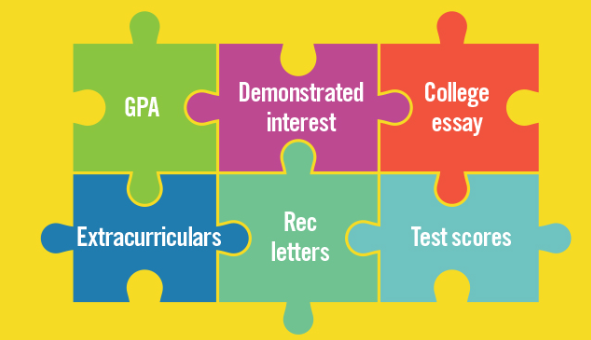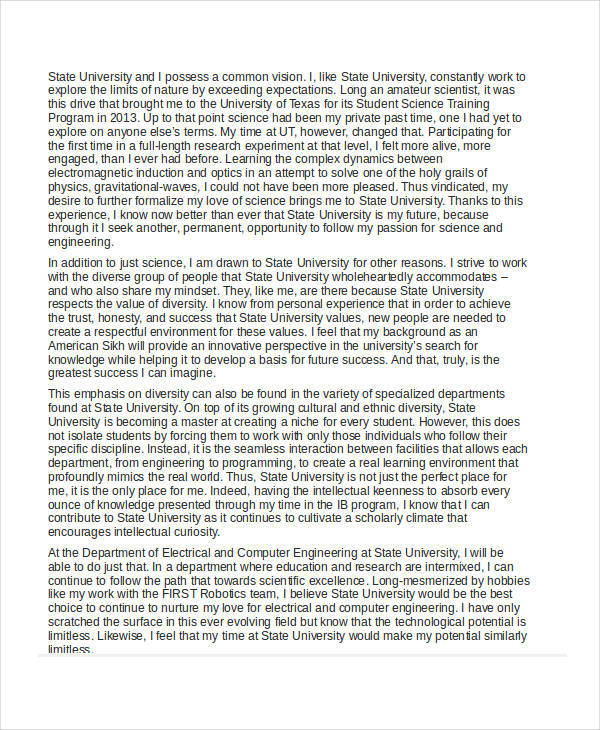Lesson #4: Write a College Essay
How to Get into College
Length: 30 mins
❏ Understand the importance of the college essay
❏ Know what colleges look for in a college essay
❏ Practice writing a college essay
❏ Reading: Key Ideas and Details
❏ Reading: Integration of Knowledge and Ideas
❏ Writing: Research to Build and Present Knowledge
❏ Language: Vocabulary Acquisition and Use

Why Write a College Essay?
What do you know about the college essay? What do colleges look for in an application essay? What are the essays about?
While grades, the strength of the curriculum, and admission test scores are the top factors in the typical college admission decision, a majority of colleges and universities believe the essay to be of considerable/moderate importance in determining which academically qualified students they would choose.
In other words, when all else is equal between hundreds or even thousands of competing applicants, a powerful, compelling, and well-written essay can tip the balance and help a college decide whether an applicant gets in or not.
The college essay is an opportunity to have colleges get to know you as a person on a deeper level compared to your GPA, test scores, and list of extracurricular activities.
The college essay helps to:
- Show your creativity and originality in tackling a complex subject. Essay topics are purposely difficult to see how you handle an unusual question.
- Reveal what motivates and drives you. It’s an opportunity to show why you think you deserve a place at the college you are applying to.
- Express yourself in writing. It is important to retain your own unique voice without giving in to the temptation to use flowery language and tiresome jargon. The best writing is always clear, concise, and natural.
- Demonstrate your level of enthusiasm. Your tone and depth of research will reveal just how much effort you’ve put in and how much you care.
- Reveal whether you are able to bring something new to a discussion. Anyone can use internet-based sources for their research, but you can truly impress by bringing an unusual perspective to an essay topic.
- Make known your powers of reasoning and analysis known. Everyone has the same data and research they can work with, but the conclusions that you draw reveal your abilities to connect the dots and discover patterns.
- Show your ability to think critically and construct logical arguments. This is one of the most prized qualities in a good essay. It is easy to just copy and repeat information you have picked up elsewhere, but the power to discern what makes sense and what doesn’t is far more valuable.
The college essay can be thought of as a story to admissions officers. The essay (or story) has a beginning, middle, and end.
Beginning: The Intro
You can open with a hook: a thought-provoking question, dialogue, or maybe even some humor. However you decide to start your essay, be sure that you have some sort of thesis in your intro. A thesis is a single sentence that sums up the main point you hope to convey in your essay. You can also think of the thesis as your answer to the question the prompt is asking. For instance, if the prompt is asking why you chose this particular college, include a sentence with an overview of the main reasons you’re interested in this college.
Hook example: “Why do people have to die?”
Thesis example: “I refused to let go of my grandmother, to accept a death I had not seen coming, to believe that an illness could steal a beloved life.”
Middle: The Body
The body of your essay should discuss events, activities, experiences, or examples that support your thesis. Each body paragraph should focus on a particular topic or aspect, and all of your points should be clearly connected.
As you outline your essay, look for any gaps or confusing transitions between ideas. Your body paragraphs should not be in random order.
Body Example: “I became desperately devoted to my education because I saw knowledge as the key to freeing myself from the chains of ignorance. While learning about cancer in school I promised myself that I would memorize every fact and absorb every detail in textbooks and online medical journals. And as I began to consider my future, I realized that what I learned in school would allow me to silence that which had silenced my grandmother.”
End: Conclusion
You’ll end your essay with a conclusion. Depending on what structure you use for your essay, your conclusion could include an ending to the story, some deep reflection, an insightful thought, looking ahead to the future, and connecting your essay to you, the type of student you’ll be, and your overall growth.
Conclusion Example: “Cancer, as powerful and invincible as it may seem, is a mere fraction of a person’s life. It’s easy to forget when one’s mind and body ar so weak and vulnerable. I want to be there as an oncologist to remind them to take a walk once in a while, to remember that there’s so much more to life than a disease. While I physically treat their cancer, I want to lend patients emotional support and mental strength to escape the interruption and continue living. Through my work, I can accept the shovel without burying granny’s memory.”
What’s Next?
New concepts covered and activities completed:
TODAY: Lesson #4: Write a College Essay
- What colleges look for in an essay
- Essay Structure
NEXT WEEK: Lesson #5: Apply for Financial Aid

